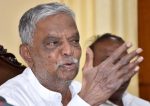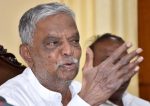
How FOMO might lurk behind teen social media anxiety
PTI, Oct 5, 2023, 12:39 PM IST

Sydney: Headlines that say using social media is safe bring tangible sighs of relief from parents worldwide.
But such headlines might be too simplistic. Research reveals a more nuanced picture when it comes to teenagers, social media and anxiety.
A recent paper has found that FOMO — or fear of missing out — is linked to whether teens find using social media increases their anxiety or relieves it.
There’s been a rise in anxiety levels in recent years and one study sought to understand this through a focus on FOMO.
FOMO is anxiety about being excluded from shared enjoyable experiences. It’s experienced by 50 percent of adolescents.
A large portion of life is now online, so parents and teens need to make decisions about how many devices they should have, what rules should surround them in the home, which devices should host social media and which apps should be used.
The apps available are like the nutrients a person may choose to consume.
The research looked at the impact of social media use on anxiety symptoms in 951 Australian teenagers at six schools.
The survey found that for 11 percent of teens, using social media frequently was associated with more anxiety and using it less came with less anxiety.
These were students who said they had high FOMO and reacted badly to information about their friends’ activities, observing conversations and feared being excluded from activities. They might not have connected with safe and non-toxic groups.
It’s possible these students do not mind when their use is restricted and some choose to use social media less because they can clearly see how it affects them.
By contrast, students who said they weren’t affected by FOMO — 54 per cent of respondents — showed stronger anxiety symptoms if they used social media less.
These students might be relying on social media for connection and to manage normal feelings of anxiety.
These are the students who might complain loudly if their use is restricted.
They are likely to need validation more often from comments and contact with ‘friends’ and might have forgotten how to support themselves offline.
The data suggested that only 35 per cent of students had no association between the frequency of their social media use and reports of anxiety.
These students had what could be described as a normal and healthy degree of FOMO.
They want to belong, but are not obsessed by that need and have hopefully balanced their ‘nutritional intake’ of offline and online activities.
Australian researchers found that fear of missing out changes the effect social media has on teens.
Yet these findings follow recent research that reported no relationship between Facebook use and psychological harm.
Studies like these make headlines but they run counter to a lot of individual experiences, the experience of clinical psychologists who treat young people, the research put out by Facebook employees, and to findings from many studies around the world.
The limits on research might offer an explanation for this.
Researchers might be limited by funding, by the length of an article that can be published in a peer reviewed journal, by varying styles of social media engagement, and even by the choices made when questions are formulated.
These limitations could leave gaps in studies, like the influential research on the relationship between mental health and technology that asked participants to exclude time spent interacting with friends and family online when they rated how often they used social media.
The FOMO study focused only on anxiety symptoms and not depression.
So it was impossible to draw conclusions about potential links between social media and depression.
But there are lessons to be taken from the FOMO study.
To improve life with technology, people might need to first assess how they fit into the categories from the study.
People who fall in the 35 percent where there is no relationship between anxiety and social media use can keep doing what they are doing.
People in the larger group — 54 percent of respondents — who might feel slightly anxious when they are not able to use social media should do a tech health check.
They might be managing normal worries by seeking reassurance, or simply using technology to escape concerns.
This lower resilience can lead to problems sleeping when worries resurface at night. Sleep deficits are one of the major mental health problems associated with unhealthy technology use.
For those who identify with the 11 percent in the category experiencing too much FOMO there is a need for change, but it takes a concerted effort.
However, the first step is to recognise that FOMO is undermining a person’s sense of life satisfaction and social well-being.
360info.org
Udayavani is now on Telegram. Click here to join our channel and stay updated with the latest news.
Top News
Related Articles More

Traffic noise can increase risk of cardiovascular disease: Study

Nearsightedness is at epidemic levels – and the problem begins in childhood

Study finds genetic basis for link between depression, heart disease

World Malaria Day: WHO calls for equitable health access

What role does genetics play in breast cancer? How can genetic testing help with early breast cancer diagnosis?
MUST WATCH
Latest Additions

PM condoles MP Sreenivasa Prasad’s death

Bengaluru maximum temperature hit 38.5 degree Celsius on Sunday: IMD

Private players will make space more accessible: ISRO chief

‘Doctored’ videos of Amit Shah: Delhi Police register case after MHA plaint

EC asks AAP to modify campaign song, party dismisses request





















